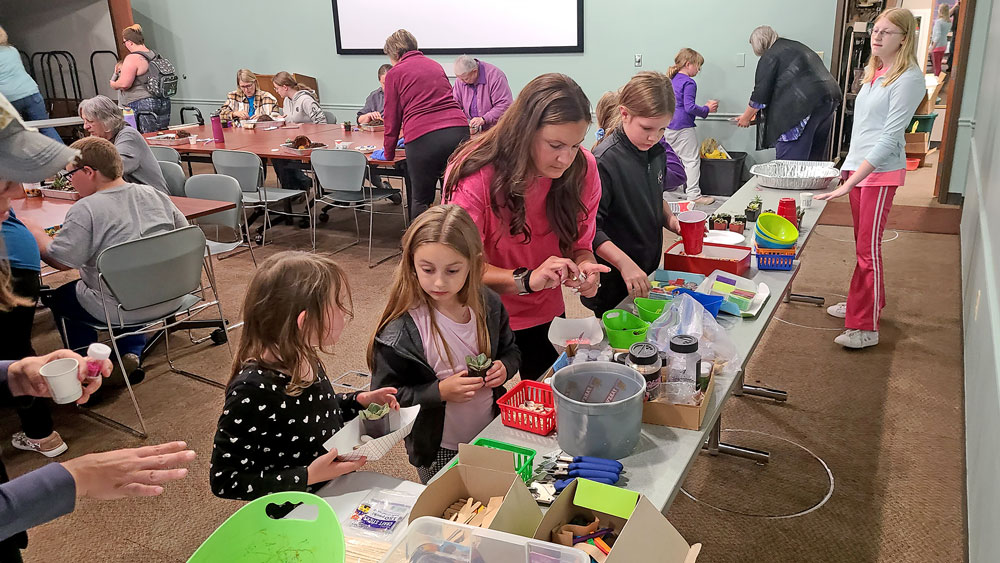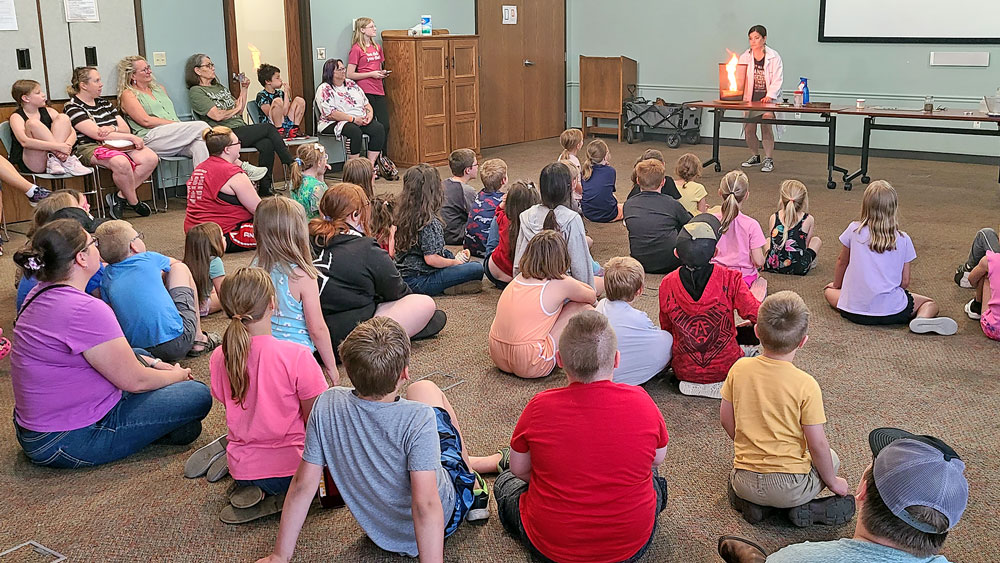South Dakota governor signs eminent domain ban on carbon pipelines

By Joshua Haiar, South Dakota Searchlight
South Dakota Republican Gov. Larry Rhoden announced Thursday, March 6, that he signed a bill banning the use of eminent domain for carbon dioxide pipelines in that state, delivering a victory to property-rights activists who spent several years advocating for the bill.
The legislation passed the South Dakota Senate on Tuesday after passing the House in late January. It prohibits carbon pipeline developers from using eminent domain to acquire land.
It is uncertain whether the pipeline project can proceed without the use of eminent domain in South Dakota.
The issue has been at the center of a contentious debate over Iowa-based Summit Carbon Solutions’ proposed $9 billion carbon capture pipeline.
The project has received permits in Iowa, Minnesota and North Dakota, while Nebraska does not have a permitting process, and some of the permits have been challenged in court.
The company’s permit from the Iowa Utilities Commission allows the use of eminent domain, but does not allow construction to begin until the project receives permits in North Dakota and South Dakota.
Eminent domain is the right to force access to private property for projects that benefit the public, with compensation determined by a county commission. It is commonly used for projects such as electrical power lines, water and sewer utilities, natural gas and oil pipelines and highways.
Summit announced last year that in South Dakota it had signed voluntary easements with landowners representing 70% of the land required along the proposed pipeline’s path through the state, but some opponents along the pipeline’s path have vowed they will never sign voluntary easements with the company.
In Iowa, Summit said last year that it had signed voluntary easements with 82% of the landowners needed to complete the pipeline through the state.
Summit Carbon Solutions issued a statement Thursday saying, “While this presents obstacles, our project moves forward in states that support investment and innovation, and we will have more news on that soon.”
The project would capture carbon dioxide from more than 50 ethanol plants in Iowa, Minnesota, Nebraska and North Dakota – and including 15 in South Dakota – and transport it to a deep underground storage site in North Dakota.
It would qualify for billions of dollar in federal tax credits incentivizing the sequestration of heat-trapping greenhouse gas emissions.
The Iowa Chapter of the Sierra Club, which has opposed the pipeline project from its inception, issued a statement Thursday saying, “With Summit’s project now in limbo, Iowa landowners call on the Iowa Senate to finally take on the issue and pass a bill to protect Iowa landowners’ rights as well.”
Similar bills to ban eminent domain on agricultural land have been introduced in the Iowa House, HSB287 and Senate, SF92. HSB287 passed out of the House Judiciary Committee Thursday morning, making it through the Legislature’s Friday “funnel” deadline.
Sierra Club Attorney Wally Taylor said, “This will effectively end Summit’s project. IUC (the Iowa Utilities Commission) must stop any further proceedings on Summit’s Phase 2 proposals. And, Summit’s phase 1 project is now a moot point.”
Kim Junker, representing a group of Butler County and Grundy County landowners, said, “Carbon pipelines are not a public use, public purpose or public necessity and should not have the right to use eminent domain in Iowa.
“It’s common sense and protects our rights,” Junker said. “Iowa doesn’t need a threshold like what the Senate proposed, we need an outright ban on eminent domain for private-profit carbon pipelines.”
In a letter explaining his decision, Gov. Rhoden, a western South Dakota rancher and former legislator, emphasized his longstanding commitment to property rights and framed the bill he signed as a means to restore trust between landowners and developers.
“I am no stranger to discussions about eminent domain and property rights,” Rhoden wrote. “l’ve fought for private property rights in this Capitol for over 20 years. When I was a legislator, I was the prime sponsor of legislation that reformed eminent domain to protect property rights. I don’t just care about landowners — I am a landowner.”
Supporters of the bill have argued that private companies like Summit should not be able to access land against the will of its owners. Opponents, however, contended that the measure could harm the ethanol industry, which is seeking ways to lower its carbon footprint as some states and countries limit sales of carbon-intensive fuels.
The Iowa Renewable Fuels Association released a statement Thursday saying, “An unnecessary roadblock has been thrown up between Midwest corn farmers and much needed new markets. The South Dakota law effectively bans carbon pipelines in the state.
“While this is horrible for South Dakota and unfortunate for nearby states, there are numerous opportunities to sequester and ways to get there that don’t include South Dakota. The demand for ultra-low carbon ethanol around the globe is so massive that, at the end of the day, no one state will be able to stop the ethanol industry from accessing that market,” the association said.
Gov. Rhoden said voluntary land-access easements should be the path forward for the project. He said his signature of the bill “does not kill the proposed project.”
“I encourage Summit and others to view it as an opportunity for a needed reset,” he wrote. “Voluntary easements for this proposed project will still be able to move forward.”
Summit, in its statement, said the ban “changed the rules in the middle of the game.”
“This kind of regulatory uncertainty creates real challenges — not just for our project, but for the ethanol plants in South Dakota that now face a competitive disadvantage compared to their counterparts in neighboring states,” Summit said.
In response to a question from South Dakota Searchlight about whether the company might challenge the new law in court, Summit said, “All options are on the table, but we remain focused on working with stakeholders to support the long-term success of the ethanol industry and support the president’s goals of American energy dominance.”
“It’s unfortunate that a piece of legislation has been framed around a single company rather than addressing broader infrastructure and economic policy,” the company added.
Summit has not yet received a permit from the South Dakota Public Utilities Commission. The company’s initial application was denied in 2023, largely due to the route’s conflicts with local ordinances that mandate minimum distances between pipelines and existing features. The company has since made some adjustments to its route and reapplied, and that application is pending.
The bill’s passage follows a shift in the South Dakota’s political landscape, with opponents of eminent domain gaining influence in the Legislature.
Last year, lawmakers passed a compromise bill that imposed new restrictions on carbon pipelines and implemented new protections for landowners and counties. But the measure faced fierce opposition because it did not ban eminent domain.
It was referred to the ballot in November and defeated, and 14 Republican incumbents lost their legislative seats in the June primary. This legislative session, some prominent critics of eminent domain were elevated into leadership positions.
Sen. Joy Hohn, R-Sioux Falls, is among the new crop of legislators who supported the eminent domain ban.
“The use of power of condemnation by a private company for the benefit of potential future markets is not worth the dangerous precident it sets for future generations,” Hohn said. “On behalf of South Dakota citizens and property owners across our great state, we are so grateful to Governor Rhoden.”
— Bob Steenson of the Charles City Press contributed to this report.
— South Dakota Searchlight is part of States Newsroom, a nonprofit news network supported by grants and a coalition of donors as a 501c(3) public charity. South Dakota Searchlight maintains editorial independence. Distributed by Iowa Capital Dispatch, also a member of States Newsroom.









Social Share